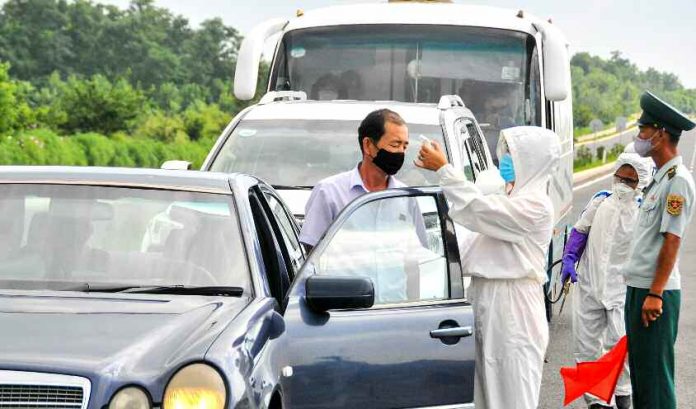
In May 2021, when North Korea had a strict COVID-19 quarantine regime in place, the South Pyongan Province Emergency Anti-Epidemic Headquarters ordered the execution of a driver who worked at the provincial prosecutor’s office.
At that time, the North Korean state permitted the use of extreme punishments for people who violated quarantine laws. Since the nation was doing everything it could to stop the spread of the COVID-19 virus, including sealing the border and banning travel, the South Pyongan Province Emergency Anti-Epidemic Headquarters decided to execute the driver.
The driver met his end because he transported medicine from China from the border region to South Pyongan Province, violating quarantine laws banning travel and misusing his vehicle.
After the execution, the wife of the driver asked provincial prosecutors to posthumously undo the wrong done to her husband. “It’s not like he was smuggling. Is it a crime to transport cargo from the border area that you received before the border was closed?” she asked.
But with the tension in the air at the prosecutor’s office after the execution, no one stepped forward. They all knew that the driver was only involved in transporting the goods, but they kept quiet so as not to incriminate themselves.
The woman then petitioned the party committee of South Pyongan Province and visited the chief secretary of the committee in person. The provincial party, however, justified the harsh punishment meted out to her husband by saying that the quarantine law was practically equivalent to a martial law and that violators deserved to be executed.
For nearly two months, the wife went to the provincial party committee and the prosecutor’s office to complain about her husband’s unjust execution. But no one has seen her since. Her eight-year-old son was placed in the care of his maternal grandmother, her household goods were disposed of, and her house was assigned to an emergency room doctor from Pyongsong who was mobilized for emergency quarantine activities.
A Daily NK source in South Pyongan Province who requested anonymity said that people who remember the execution of the driver say that they think the woman was dragged away somewhere because she was causing trouble.
The government’s overreach during COVID is slowly coming to light
This incident was just one of several during the COVID-19 pandemic, and people still feel pain when they think of the times when they saw their neighbors starving, getting sick and dying, being dragged off to prison, or even executed. They say frustration still lingers over the government’s extreme response to COVID-19.
During the pandemic, people criticized the government’s ruthless response to the virus and critics were treated as serious criminals. The North Korean authorities felt that they had to suppress complaints or opinions about the state’s quarantine measures during a serious warlike emergency because they considered them harmful to the leadership of the party and state and selfish.
In such an atmosphere people had to endure uncertainty and fear. Now the events of that time are coming to light as people who have endured this treatment for years begin to speak out. The government can bury things for a while through fear and repression, but it cannot hide them forever.
Translated by David Black. Edited by Robert Lauler.
Daily NK works with a network of sources living in North Korea, China, and elsewhere. Their identities remain anonymous for security reasons. For more information about Daily NK’s network of reporting partners and information-gathering activities, please visit our FAQ page here.
Please send any comments or questions about this article to dailynkenglish@uni-media.net.


















